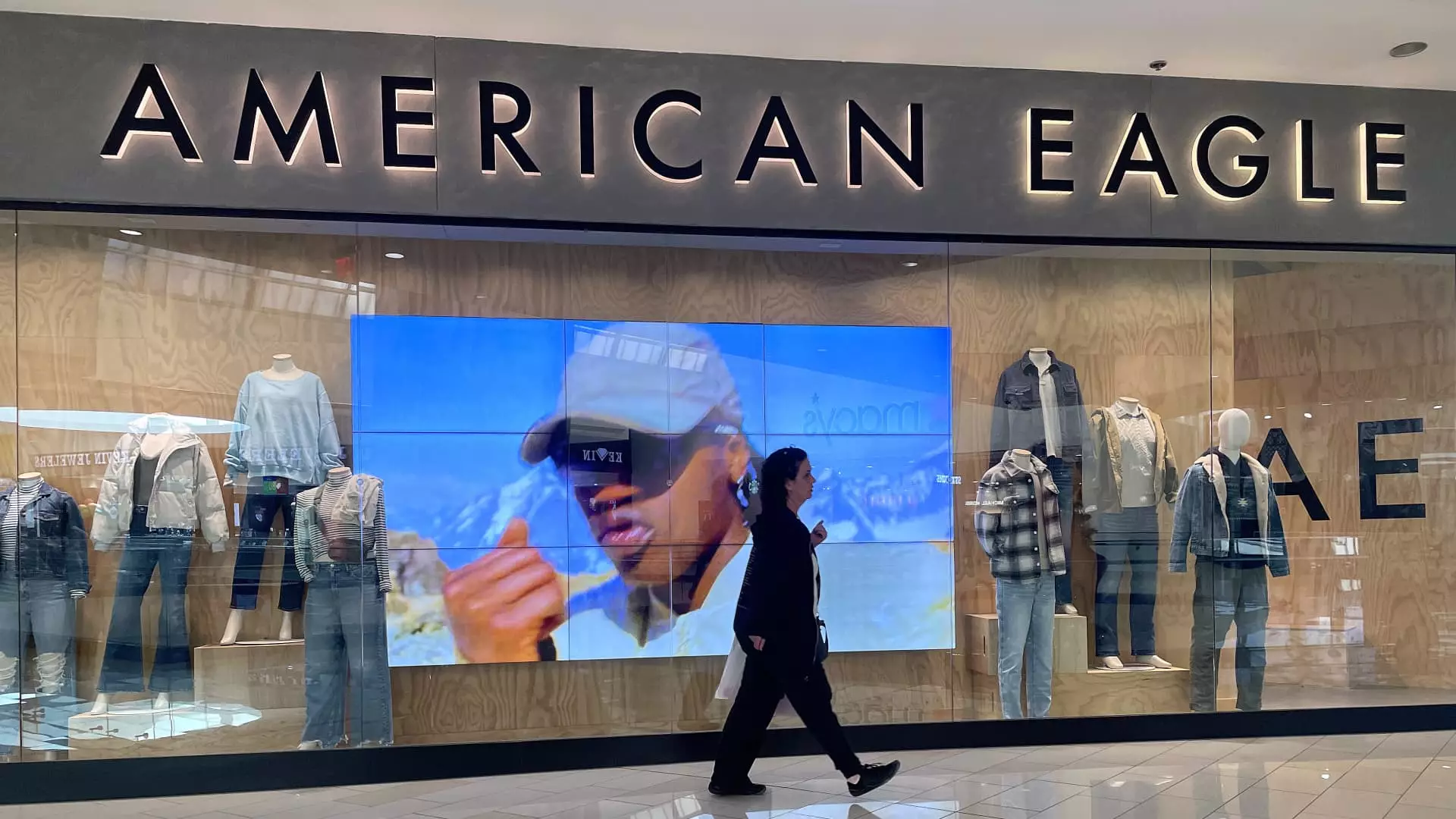In an era dominated by e-commerce giants, legal battles over trademark infringement have become increasingly common. The latest high-profile lawsuit involves American Eagle Outfitters, which has officially accused Amazon of using its Aerie brand’s trademarks without authorization. Filed in the Southern District of New York, this lawsuit alleges that Amazon’s actions mislead consumers and result in the availability of lower-quality imitations that dilute the Aerie brand’s reputation.
Aerie, launched in 2006, has carved a niche in the highly competitive market of activewear and lingerie aimed primarily at young women. American Eagle’s argument hinges on claims that when consumers search for Aerie products on Google, they are directed to Amazon’s platform, where they are met with counterfeit or inferior versions of the stylish and high-quality items the brand is known for. This situation raises essential questions about brand integrity, consumer deception, and the responsibilities of e-commerce platforms.
At the core of American Eagle’s claims is the assertion that these unauthorized listings mislead consumers into thinking they are purchasing authentic Aerie products. The lawsuit alleges that numerous customers searching for products are being presented with a façade of legitimacy on Amazon’s marketplace, only to land on pages filled with misleading listings featuring misspelled versions of the Aerie brand name. Cases like these can harm not only a company’s bottom line but also its brand credibility and consumer loyalty.
Aerie prides itself on offering products designed with care, an image tarnished by the presence of what American Eagle deems as “knock-off” items. Companies expend considerable resources to cultivate a positive brand identity that resonates with their target audience; when that identity is compromised by counterfeit goods, the damage can be profound and lasting.
The lawsuit is also a reflection of the complexities involved in Amazon’s marketplace model, which allows third-party sellers to operate alongside traditional retail. While this setup can offer consumers a wider range of products and sometimes lower prices, it also creates challenges in maintaining quality control and brand protection. This legal battle isn’t an isolated incident: brands from Birkenstock to Daimler AG have also expressed their frustrations with counterfeits proliferating on Amazon. The intense competition in the marketplace often prioritizes volume over authenticity, leading to issues not just for established brands like Aerie but for consumers who may inadvertently purchase subpar products.
Despite these criticisms, Amazon has publicly stated that it prohibits counterfeit goods on its platform and has initiated efforts to strengthen its policies regarding brand protection. Yet, American Eagle’s allegations suggest that the company’s responses may still fall short in addressing the existing problems facing brands.
This lawsuit signals a broader conversation regarding the responsibilities and regulations governing e-commerce platforms. As online shopping continues to grow, the need for clearly defined regulations on trademark protection is increasingly vital. Brands must feel they can safely enter online marketplaces like Amazon without fearing that their identities and reputations will be compromised.
From a legal perspective, this case may set essential precedents regarding the liability of e-commerce platforms in mitigating the impacts of counterfeit goods. If American Eagle succeeds in proving its claims, there could be a ripple effect that prompts other companies to take similar actions against Amazon and other platforms. This would be a significant turning point that could reshape how brands interact with e-commerce giants moving forward.
As American Eagle seeks both an injunction and financial restitution for the alleged trademark infringement by Amazon, the outcome of this legal battle may have far-reaching implications. Should the court rule in favor of American Eagle, it could lead to more robust protections for brands and significantly alter the dynamics of online retail. On the other hand, a ruling in favor of Amazon could reinforce the current e-commerce landscape, allowing the status quo to prevail while raising unresolved questions about accountability and consumer rights.
The legal proceedings will be closely watched by industry observers, brand advocates, and consumers alike, highlighting the ongoing need for a balance between market accessibility, brand integrity, and consumer protection in the complex world of e-commerce.


Leave a Reply